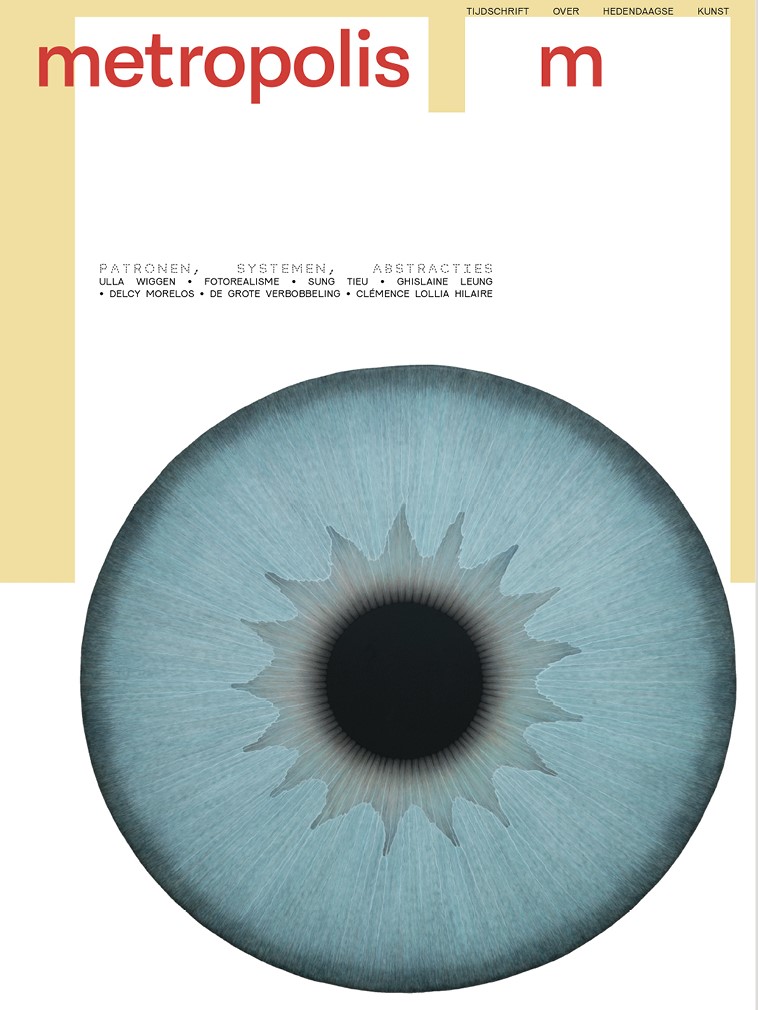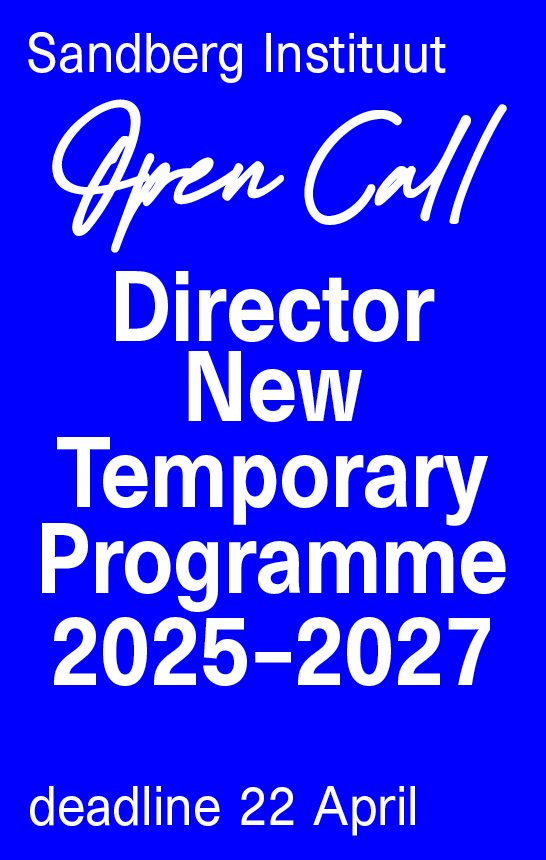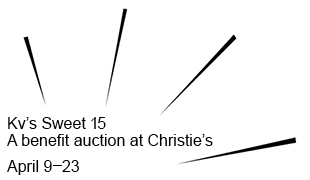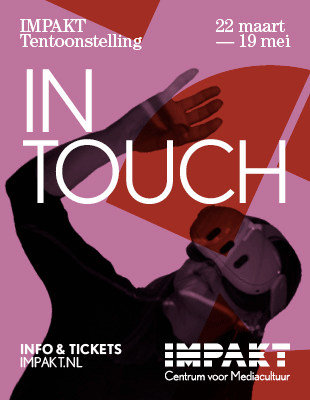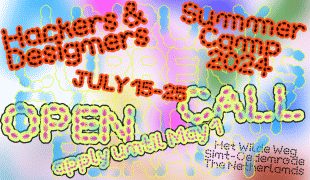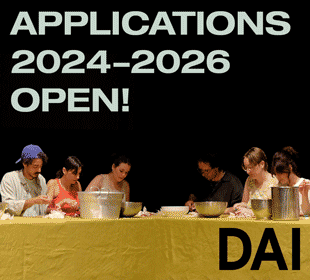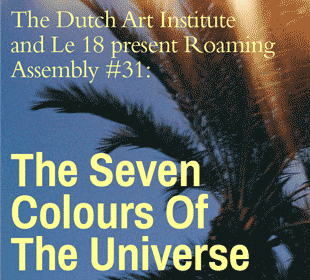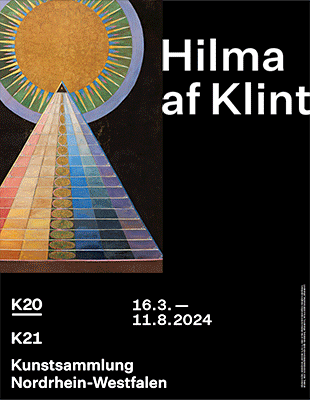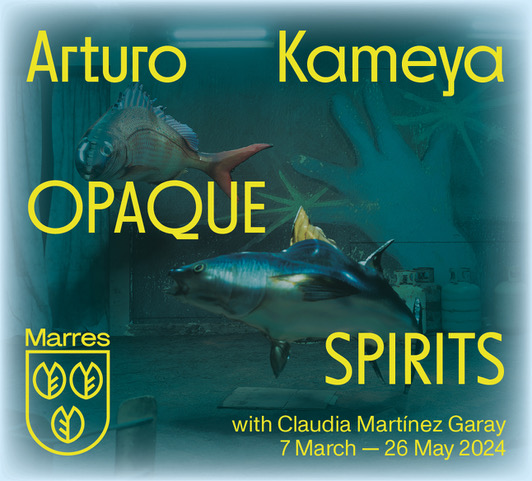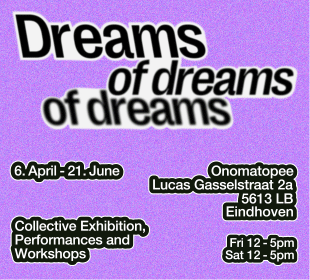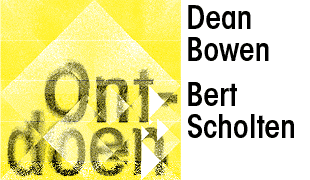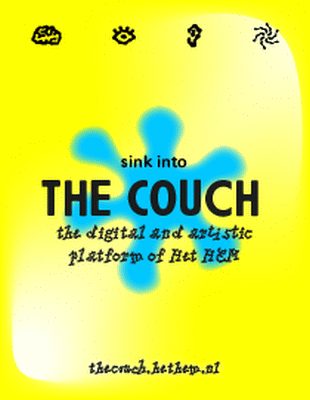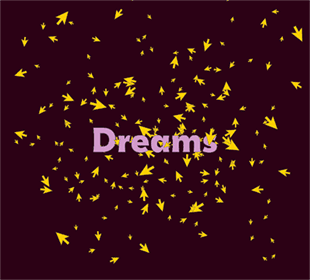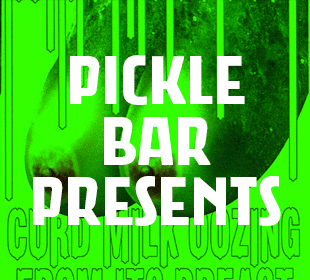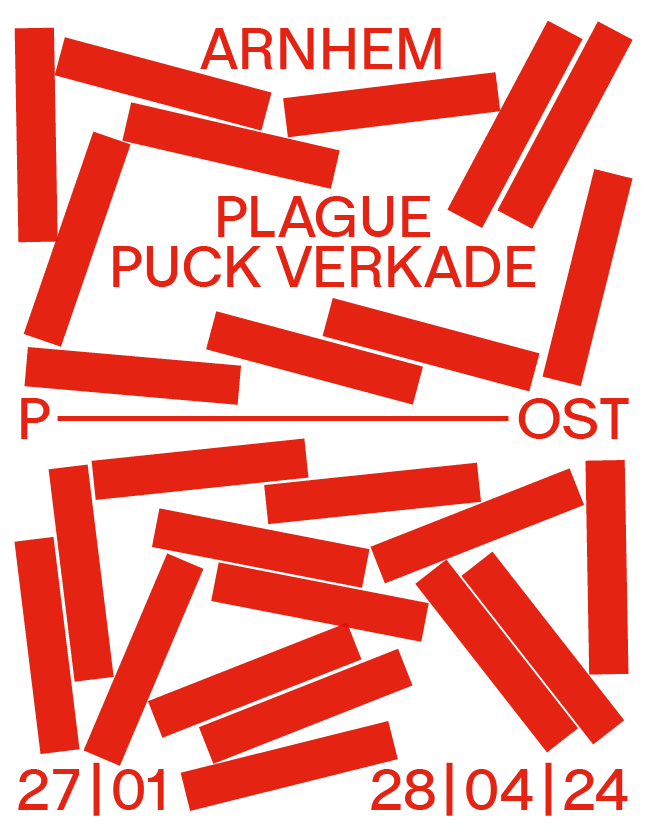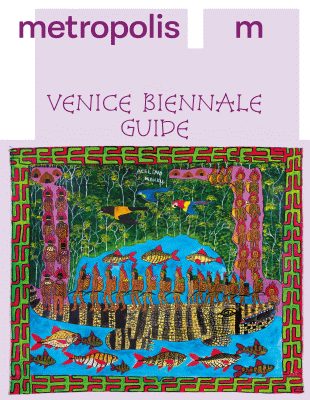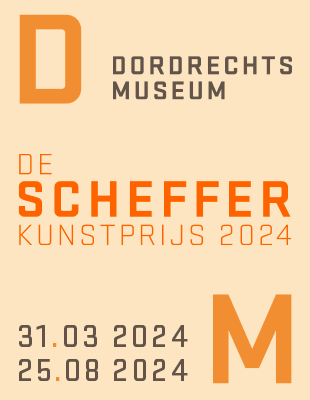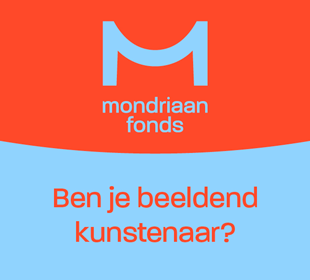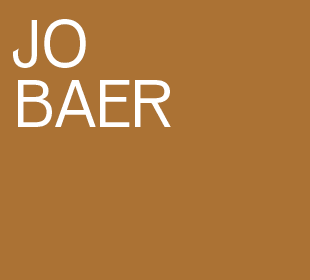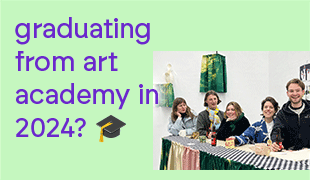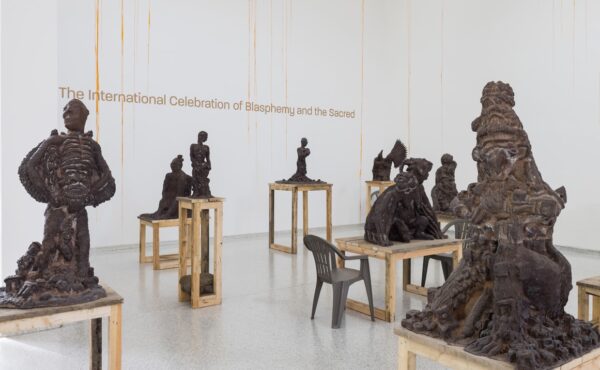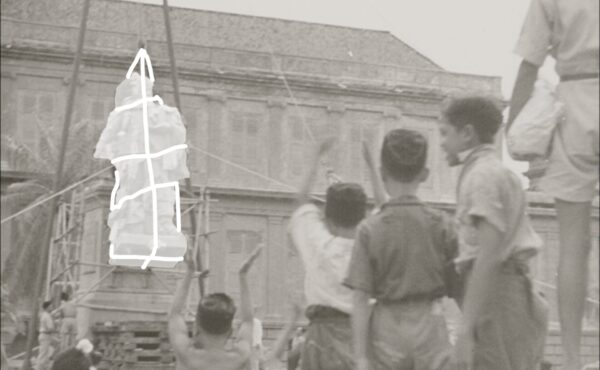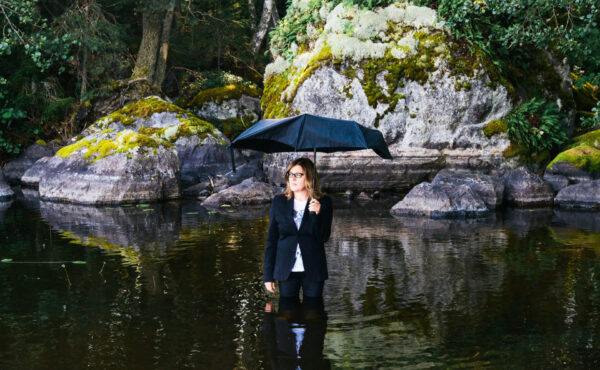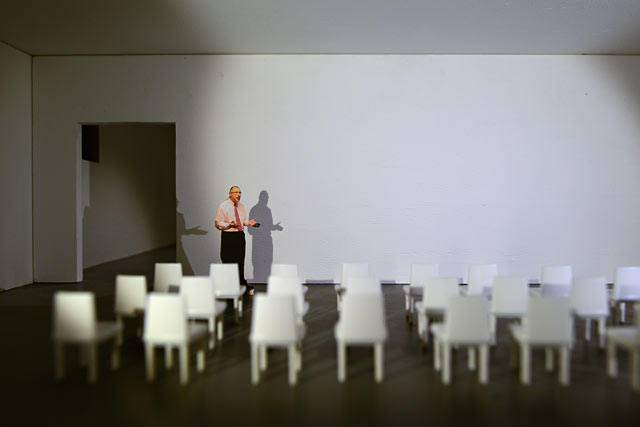
‘You – hypocrite reader – my double – my brother!’ Impakt Festival 2013

Capitalism as a mode of organization gets weaker and weaker, but nevertheless it seems the only functional economical system. Other alternatives are not yet to be found. We have reached a dead end, a catch 22. Now what? A dilemma which Impakt Festival 2013 will happily shine its light on with a series of film and video programs by Florian Wüst, lectures and presentations by Monnik and an exhibition curated by Benjamin Fallon with whom Metropolis M had a short conversation with.
While entering the exhibition space a large comic looking collage welcomes you. It’s the Capital Drawing Group from Andrew Cooper, Enda Deburka, Dean Kenning and John Russel. Four artists, who decided to come together to read Das Kapital from Karl Marx. In these turbulent times, where the welfare state has reached its end, they turn to Marx to get a better understanding of the latest developments within the system. I’m reading the used quotes, when Benjamin Fallon comes in. He has just arrived from Brussels and with his jacket and rucksack still on he leads me through the rest of the exhibition and answers some questions.
What was your starting point for this exhibition?
I wanted to exhibit artworks from artists who react on the concept of capitalism by using the same terms and conditions. The exhibition To the Reader arises from the idea that capitalism is a social construction that defines our behaviour. The works arise from within these social constructions and therefore make us aware of these social relations and their complexity. The works follow certain routes within this capitalist system and how we as an individual take our role in this. It really addresses the individual, the reader.
Why did you choose this approach?
I wanted to show something different, as looking at the art world one often sees works that try to objectify capitalism to give critique from a safe distance. This exhibition is about creating awareness. My intention is not to give solutions for the problems the system is having nowadays and I don’t want to tell people what they should think. I just want to make people aware of the contradictive world we are living in, and what this does with us as an individual.
The latest works of Marika Troili, for instance, are direct outgrowths from her part-time job at the privatised Swedish Postal Service. The new work she made for this exhibition arose from a residency in Utrecht where she compared the developments in the Swedish labour circumstances with the local developments at the Postal Service in Utrecht. Quotes from employees are engraved in wooden plates, one of the first forms of post. She shows the effect recent cuts have on the operating conditions of a company where efficiency now is the highest goal, no matter the consequences.
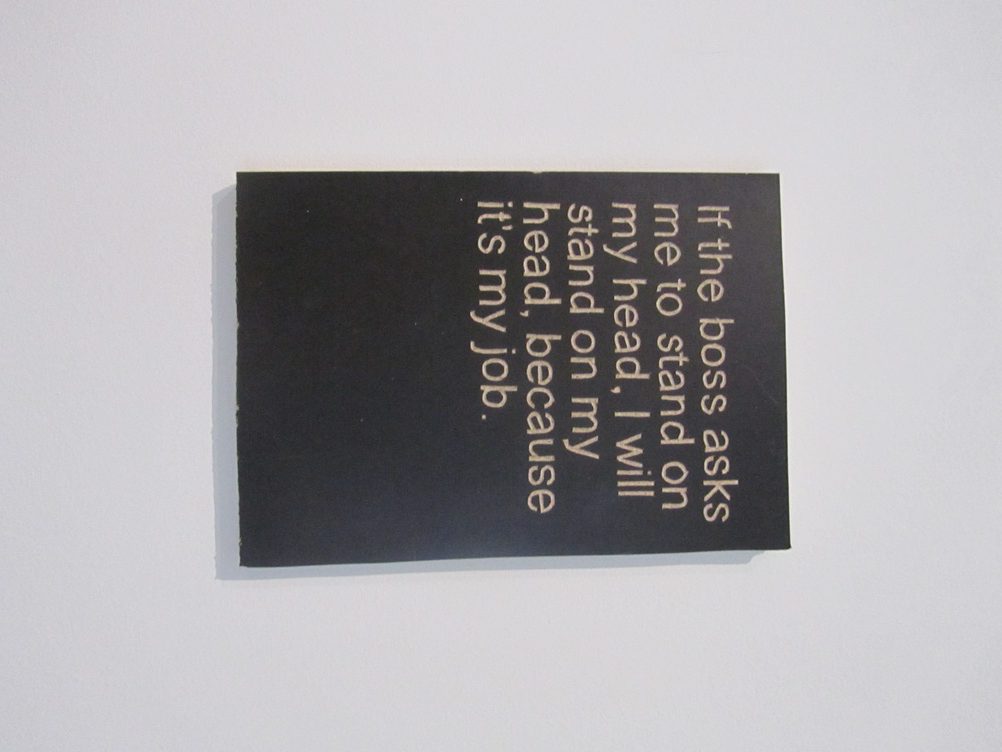
Paul Sullivan addresses the technical, legal and bureaucratic rules of immigration and also the emotions and desires that comes with it in Noodle Bar. An interesting project where a selected Korean family came to Liverpool to run a Noodle bar alongside the Static Gallery. The Noodle bar opened two weeks ago.
And Daniel Andujar has collected more than 250.000 documents in the period between the fall of the Berlin wall in 1989 up until 9/11. In this archive he tries to give a chronological presentation of the complex and contradictive realities from the post capital world we are living in.
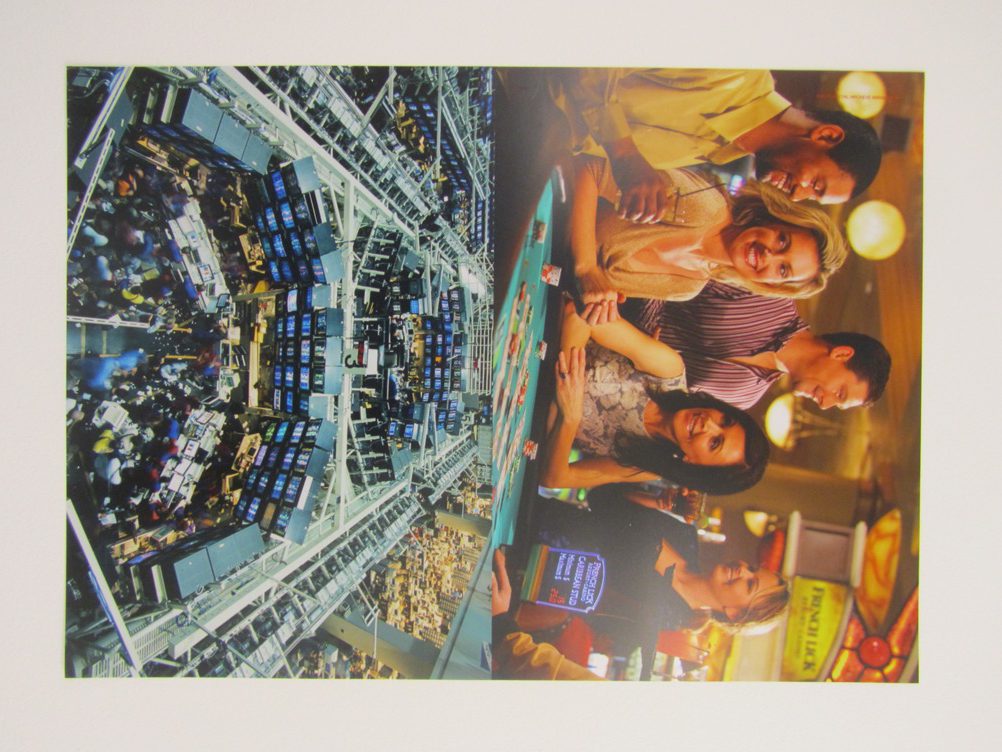
Where does the title To the Reader come from?
Well, I’m still figuring that out, but first of all it’s a reference to the poem by Charles Baudelaire. Especially the last sentence, which is a beautiful sentence: ‘You – hypocrite reader – my double – my brother! (The poem is roughly about the nothingness of man). Furthermore, the title refers to the individual; it’s a direct approach to the visitor.
There are three themes running through this exhibition concerning the question of labour, the image production of capitalism and the pressure to perform within this system. Did these themes form the basis of your research or how did it go?
No, not really and the themes are not that clearly put in the exhibition but they more or less came to the surface during this investigation, as a logical consequence. It was not like I thought of these themes beforehand and searched for works who could relate to these themes. They are important point of views from which one can look at capitalism and obviously they have a certain relationship with each other within the system.
Do you think artists can help us get a better understanding of capitalism, and maybe give us other alternatives?
I don’t think it goes as far as that. I think artists carry a heavy burden as a lot is expected from them. But they can certainly make us aware of everything that surrounds us, and more importantly they give us a different perspective. But for an alternative approach we need to be in politics.
It’s quite a heavy and difficult theme to make an exhibition of. How did you make sure it was manageable for the visitor?
Yes, indeed it’s a difficult theme, but I think a lot of works have some humour which makes it a bit lighter. For instance Capital Drawing Group, there is a lot of humour in these images.

Participating artists:
Daniel Andujar
Bureau D’etudes
Liam Gillick
Goldin+ Senneby
Hiwa K
Mierle Laderman Ukeles
Learning Site
Huw Lemmey/Ben Vickers
The Bureau of Melodramatic research
Andrew Cooper, Enda Bedurka, Dean Kenning, John Russell
Paul Sullivan
Marika Trioli
You can visit To the Reader untill 3 November in BAK in Utrecht, the same goes for Impakt Festival which has different locations in Utrecht.
Pam Roos ten Barge
